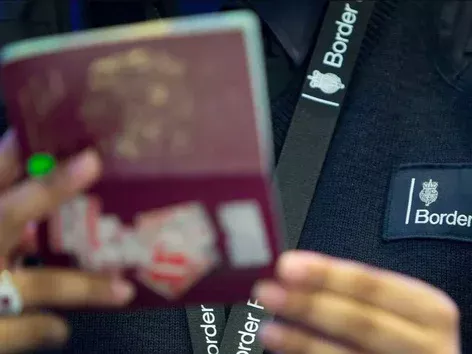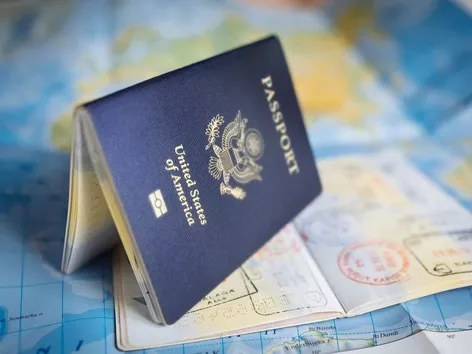Visa free travel to Japan: the country plans to introduce a new entry system to control travelers and current visa-free border crossing rules in 2024

Japan plans to change visa-free travel rules for travelers from 71 countries by introducing a new travel authorization system. Find out when they plan to approve the new system, how entry rules will change and what requirements are relevant in 2024
Japan has announced a decision to introduce a new entry system for visa-free travelers from 71 countries. JESTA's new travel authorization system will require travelers to register online. The main goal of the move is to reduce illegal stays and improve border security by making entry into Japan more regulated and safe.
JESTA is the Japanese version of the ESTA system in the US and ETIAS in the EU
It is already planned that the JESTA system in Japan will work according to the principle of ESTA in the USA and ETIAS in the EU. Travelers from visa-free countries will need to fill out a special online form before entering Japan and receive a confirmation that will need to be shown when crossing the border.
The main goal is to reduce illegal stays in the country by screening travelers from visa-free countries before they enter Japan. Currently, stays of 14 to 90 days are allowed, but many visitors overstay. The Japanese government hopes the new system will help identify potential risks before these people even board their flights.
How will the JESTA system work?
JESTA will require visitors from visa-exempt countries to declare their purpose of entry. A person identified as a potential risk traveler will be denied permission and advised to apply for an official visa through the local embassy. This information will be verified by the Immigration Service Agency.
When is JESTA planned to be implemented?
The Japanese government plans to start implementing the JESTA system already this year. In particular, a trial system is expected to be launched under which airlines will send passenger information to the Immigration Service Agency. They, in turn, will cross-check data with a blacklist of travelers, including those with a criminal record or other security concerns, which will allow airlines to deny boarding to flagged passengers.
It is predicted that JESTA will be fully operational only by 2030.
Countries with visa-free travel to Japan
It will be necessary to register in the JESTA system for travelers who are citizens of countries that have a visa-free regime with Japan, these are representatives of the following 71 countries: Andorra, Argentina, Australia, Austria, Bahamas, Barbados, Belgium, Bulgaria, Brunei, Brazil, Canada, Chile, Costa Rica, Croatia, Cyprus, Czech Republic, Denmark, Dominican Republic, El Salvador, Estonia, Finland, France, Germany, Greece, Guatemala, Honduras, Hong Kong, Hungary, Iceland, Indonesia, Ireland, Israel, Italy, Latvia, Lesotho, Liechtenstein, Lithuania , Luxembourg, Macau, Malaysia, Malta, Mauritius, Mexico, Monaco, Netherlands, New Zealand, North Macedonia, Norway, Panama, Poland, Portugal, Qatar, Republic of Korea, Romania, San Marino, Serbia, Singapore, Slovakia, Slovenia, Spain, Suriname, Sweden, Switzerland, Taiwan, Thailand, Tunisia, Turkey, United Arab Emirates, Great Britain, USA and Uruguay.
To move, travel or work safely in a new country, you will need health insurance. You can apply for an extended policy on our website here.
Rules for visa-free travel to Japan in 2024
If you are a citizen of one of the visa-exempt countries listed above and are traveling for a short-term purpose, you can only travel to Japan if you have:
- A passport that must be valid for at least six months after the move and have at least two blank pages for entry/exit stamps.
- Confirmed return ticket.
However, please note that if you are traveling under the visa-free regime, you cannot work or engage in any paid activities in Japan. In addition, you cannot apply for an extension of stay or obtain another type of visa in Japan. To do this, you must apply for an appropriate long-term visa from your country before your trip.
Japan's new travel authorization system aims to tighten border controls and ensure that visa-free visitors follow entry rules. Of course, the main goal of implementing JESTA is to improve safety for both Japan and visitors. However, the system can also create some problems for travelers who are used to traveling without a visa, including longer checks at the border. It will be possible to speak more precisely about this only after the full launch of JESTA.
We will remind you! We have already told you that after numerous postponements and revisions, it is predicted that the new system of entry and exit to the European Union EES (Entry-Exit System) will become operational already in October-November 2024. It will become part of the new policy of safe entry to the countries of the region, which will be supplemented by the European Travel Information and Authorization System (ETIAS) next year.
Ihor Usyk - head of Visit World's legal department
Products from Visit World for a comfortable trip:
Checklist for obtaining a visa and necessary documents for Japan;
Legal advice on immigration to Japan;
Travel insurance for foreigners in Japan;
Medical insurance all over the world.
Frequantly
asked questions
How many days can you stay in Japan without a visa?
Who needs a visa to enter Japan?
How much does a visa to Japan cost?
Recommended articles
2 min
Residence permit
Moving to Japan in 2025: How to get a residence permit in Japan?
Japan is one of the most attractive countries to live and work in, but its migration system is quite complicated. Foreigners planning to move in 2025 need to follow a clear algorithm. Learn more about possible immigration paths, visa requirements, rules for legalization upon arrival, and employment opportunities
07 Jun. 2025
More details2 min
Travels
EES will become operational in October 2025: should we expect queues at EU borders?
After many attempts, the new European Union entry and exit control system, the EES, is finally set to go live in October 2025. It is expected that starting this fall, entry into the European Union for citizens of non-EU countries will become more difficult. Find out when the EES will be introduced, whether foreigners with an EU residence permit need to register with the EES and ETIAS systems, and other important details
22 Jul. 2025
More details1 min
Employment
Japan will update its business manager visa requirements in 2028, tightening the criteria for foreign entrepreneurs. Find out what rules remain in place, what will change, how to prepare for renewal, and why the government is implementing these reforms.
23 Oct. 2025
More details2 min
Employment
In 2024, New Zealand introduced a number of important changes to visa and migration policies. Find out what these changes are, what categories of permits are affected by the innovation and who should be prepared for the new rules
04 Sep. 2024
More detailsAll materials and articles are owned by VisitWorld.Today and are protected by international intellectual property regulations. When using materials, approval from VisitWorld.Today is required.
